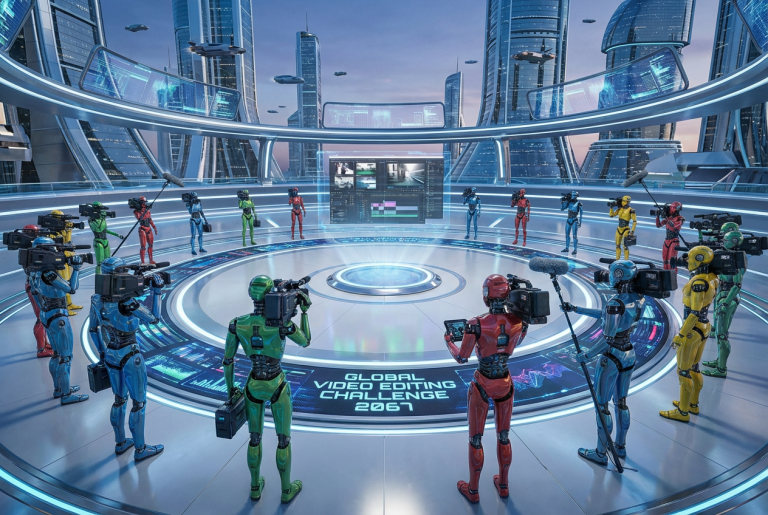How can AI be used to support students in the post-graduation job search?

Applying for a job in the modern world can feel overwhelming – there are so many companies and roles out there, all with their own specific requirements. To make things harder, a job title at one company may not mean the same thing to another, which can make it difficult for junior candidates to find roles that actually match their level of experience.
Fortunately, the recent advancements in artificial intelligence (AI) are able to smooth the way to getting a foot on the career ladder. In this post, we explore three ways this technology can be used in the post-graduation job search.
What AI can do for you when you are looking for jobs?
Beyond simple automation, AI tools can now tailor your application materials, pinpoint ideal roles, and even coach you for interviews. This isn’t about replacing your effort, but about making it smarter and more effective.
Enhancing resumes and cover letters
Many people use a template to create their resume and cover letter – both of which are essential components of being successful on the job market. However, graduates tend to not have much business experience. So, it’s important to highlight transferable skills that may have been gained in previous part-time jobs or volunteer work, rather than relying on job titles or company names standing out.
An AI resume builder can be used to create a first draft resume and cover letter that are designed specifically for the job role the candidate is applying for. Whilst they’ll need to be proofread and tweaked so that the wording feels personal, they’re a great place to start and create a professional-looking document. Students may have already used AI in a similar way at university, so this is a simple opportunity to enhance their job search.
Finding a job
Filtering through jobs can be a time-consuming task, and after a while all the descriptions blur into one. Plus, there are only so many hours in the day, meaning that candidates are more likely than not to miss out on a role that they’d be interested in.
AI can take the manual repetition out of this task, digesting the information on a resume and then scanning the job boards, pulling out roles that would best suit that particular applicant’s skills and experience. Not only does this save time, but it means that the candidate is more likely to be a better fit for the job, increasing their chances of securing the all-important interview. Having relevant keywords on their resume can help with this.
For interview practice
Even if someone is qualified for the role, interviewing well is a skill in itself. Many people get daunted by the questions, or find it hard to explain their experience in a way that makes it clear to the hiring manager that they’d be a great fit. Whilst there’s some established interview questions that get asked on a regular basis, so some element of preparation is possible, graduates may not yet be familiar or confident with these – which is where AI can help.
By using generative AI, job seekers can ask the large language model to create a list of potential questions they may be asked, based on the job title and description, allowing graduates to feel more prepared. Whilst it’s important not to just memorize the answers, it can help to have a rough idea of how you might structure an answer before you’re in the hot seat.
Securing their first role
AI serves as a valuable ally for graduates entering the workforce, offering tools to enhance various aspects of the job search. However, it’s imperative to maintain a human touch throughout the process. Candidates should thoroughly review their applications to ensure accuracy and authenticity, as over-reliance on AI can lead to misrepresentations of skills and experiences.
Embracing the Future of Job Hunting

The integration of AI into job hunting offers a strategic advantage, transforming a traditionally daunting process into a more manageable and targeted endeavor. By leveraging Interview AI and other tools for crafting tailored resumes, identifying suitable job opportunities, and preparing for interviews, candidates can enhance their prospects. However, it’s crucial to remember that AI is a tool designed to augment human effort, not replace it. The combination of personal skills, experiences, and the intelligent use of AI will ultimately pave the way to a successful career.
The Rise of AI-Driven Job Applications
In recent years, some job seekers have turned to AI automation to apply for thousands of jobs simultaneously. For instance, a programmer utilized AI-powered services like LazyApply to submit applications en masse, applying for 5,000 positions. While this approach can increase the number of applications submitted, it may lead to mistakes and has been met with skepticism by recruiters who value personalized applications.
This trend underscores the importance of balancing efficiency with personalization in the job search process. While AI can expedite certain tasks, the quality and authenticity of applications remain paramount. Employers appreciate candidates who demonstrate genuine interest and effort in their applications, highlighting the need for a thoughtful approach even when leveraging AI tools.
In conclusion, AI offers significant advantages in the job search process, from enhancing application materials to identifying suitable roles and preparing for interviews. However, it’s essential to use these tools judiciously, ensuring that the human element remains central. By combining the strategic use of AI with personal effort and authenticity, job seekers can navigate the evolving landscape of employment opportunities more effectively.




